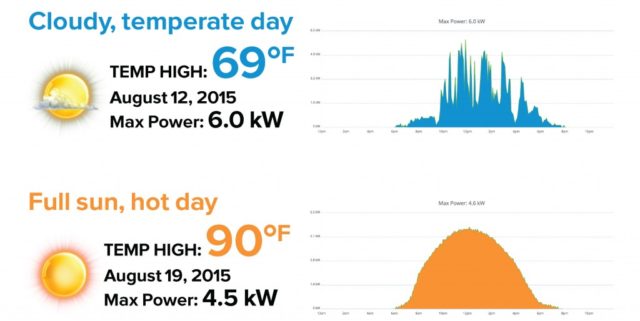How do the seasons and weather affect my solar production?
Solar panels do produce better at cooler temperatures! Hot, hot heat is hard on electronics in the summer, so the cooler days and months provide more efficient solar production. So, those hot blue sky summer days? Your solar system will be cranking, but you won’t see it performing at its max power level.
For example: A 6 KW system can produce a max 6 KW at any given time. But, in the hot, hot days of summer the system will peak at a lower max power level because the heat reduces the panel efficiency. Alternatively, on cooler days you’ll see higher max power levels. And in the shoulder seasons (spring and early winter) you’ll see some of your most efficient days reaching max power, but given the days are shorter with less sunlight you likely won’t see bigger solar production numbers.

